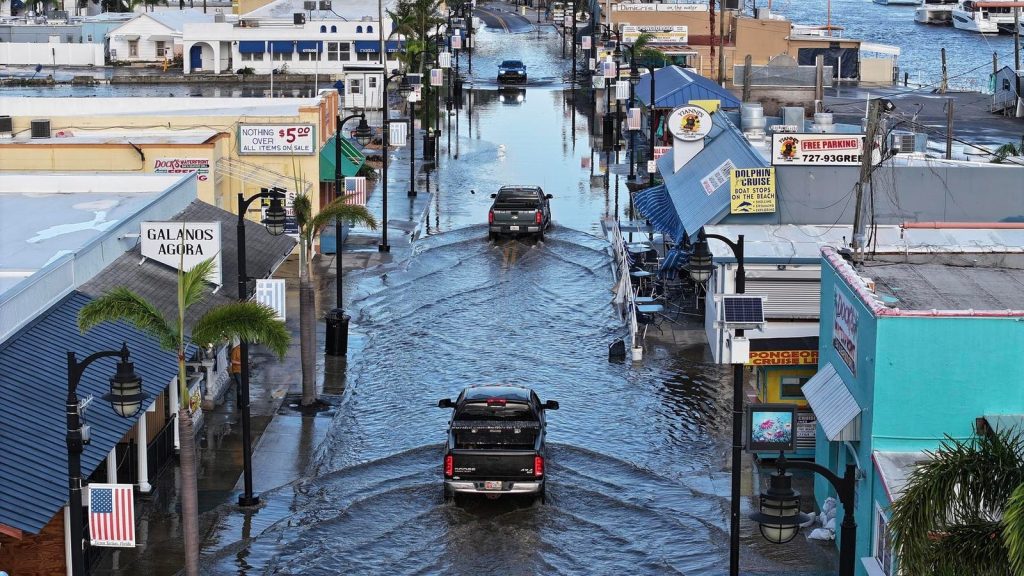The cost of homeowners insurance has experienced a substantial surge since January 2023, increasing by nearly 18% as of November 2024, with further increases anticipated. This escalating trend is primarily attributed to the growing financial burden of climate change-related damage. Natural disasters like tornadoes, hurricanes, floods, and wildfires are becoming more frequent and severe, leading to a surge in insurance claims. Insurance companies, facing mounting losses, have warned of the unsustainable nature of these escalating costs, which have ultimately translated into higher premiums for homeowners. This upward trajectory in insurance costs represents a significant cost-of-living challenge for homeowners nationwide.
A recent report by the U.S. Senate Committee on the Budget, based on data from 2018 to 2023, sheds light on the increasing difficulty homeowners face in obtaining and retaining insurance coverage. The report reveals a nationwide surge in insurance non-renewals, particularly in states and counties most vulnerable to climate change risks. States like Florida, California, and Louisiana, known for their exposure to hurricanes and wildfires, are unsurprisingly experiencing high non-renewal rates. However, the problem extends far beyond these traditionally high-risk areas. Southern New England, parts of Montana, coastal stretches of New Jersey and the Carolinas, New Mexico, Oklahoma, and Hawaii are also witnessing a concerning rise in non-renewals. Texas, despite its recent history of storm-related damage, is notably absent from the top ten states with the highest non-renewal rates.
The correlation between rising non-renewal rates and increasing premiums across the United States points to a strong link between climate change and the affordability and availability of homeowners insurance. While correlation doesn’t definitively prove causation, the connection suggests that climate change is a primary driver of the insurance crisis. As insurers pay out more for climate-related damage, they must recoup those losses by raising premiums, making insurance increasingly unaffordable for many homeowners. This creates a vicious cycle where rising premiums lead to more non-renewals, further compounding the problem.
The ramifications of the insurance crisis extend beyond affordability, potentially impacting property values and the broader financial system. Obtaining a mortgage becomes nearly impossible without insurance, as lenders are reluctant to finance properties at risk of destruction without a means of recouping their investment. This restricted access to mortgages shrinks the pool of potential buyers, limiting demand and driving down property values. The Senate Budget Committee report warns of a potential collapse in property values if this trend continues, potentially triggering a financial crisis akin to the 2008 housing market crash.
The implications of this scenario are far-reaching, impacting individual homeowners, the real estate market, and the broader economy. Without insurance, homeowners are left vulnerable to catastrophic financial losses in the event of natural disasters. Declining property values erode homeowners’ equity and destabilize local economies, while a widespread housing market downturn could have cascading effects on the financial system. Addressing this complex crisis requires a multi-pronged approach involving both mitigation and adaptation strategies.
Several potential solutions have been proposed, including accelerating the transition to renewable energy and reducing carbon emissions to mitigate the long-term effects of climate change. While this is a crucial step in addressing the root cause of the problem, it does not offer immediate relief to homeowners facing soaring premiums and the risk of non-renewal. Other solutions include encouraging relocation from high-risk areas, which would involve complex social and economic considerations. The establishment of government-backed high-risk insurance programs could provide a safety net for homeowners in vulnerable areas, but this approach carries the potential for significant financial burden on taxpayers and could incentivize people to remain in harm’s way. Ultimately, a combination of strategies will be needed to address this complex challenge and ensure the long-term stability of the housing market and the financial system.










